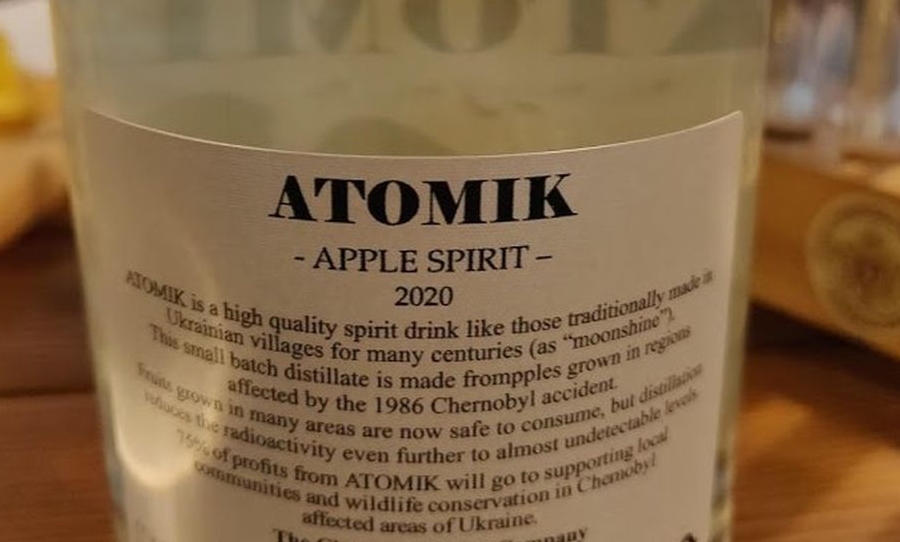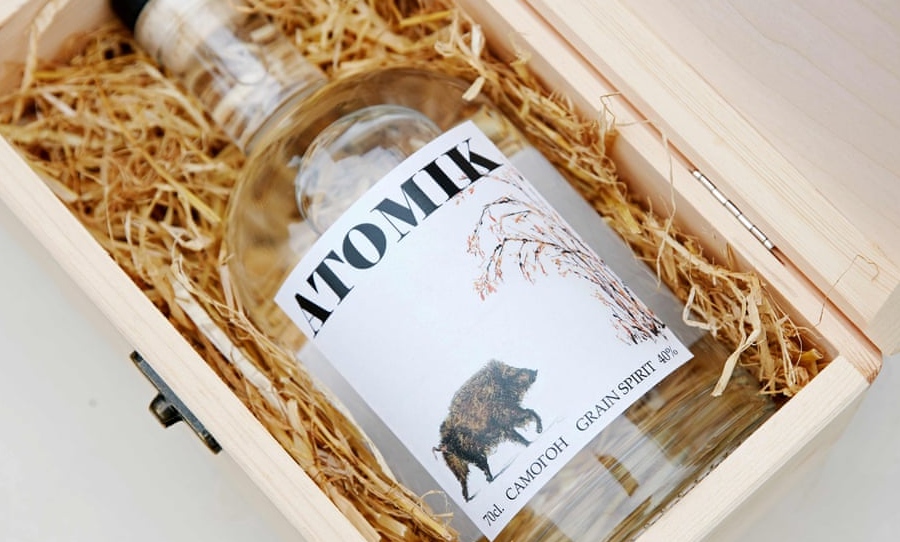Ukrainian authorities have seized the first UK-bound shipment of an “artisanal spirit” made from apples grown near Chernobyl.
Ironically named “Atomik”, the manufacturers of this cursed alcohol, ‘The Chernobyl Spirit Company’, are a UK-based social enterprise founded by a University of Portsmouth professor Jim Smith, as well as a team of scientists who work in Chernobyl’s exclusion zone and surrounding areas.
Their research focuses on whether agriculture grown in the Chernobyl area can be safe to eat.

“There are radiation hotspots [in the exclusion zone] but for the most part contamination is lower than you’d find in other parts of the world with relatively high natural background radiation,” Professor Smith shared with the BBC.
According to the company, their research has proven that distillation significantly reduces the radioactive levels of crops grown in the area.
Chernobyl alcohol drink seized by authorities
You’re all good if you drink it and don’t grow a second head within 48 hours, or die I guess. https://t.co/6IyDGNCNPv
— Kiwi_CGFX (@Kiwi_CGFX) May 8, 2021
The apples were harvested from the ‘Narodychi District’, which is not covered by the exclusion zone. Though the company has created a recipe that they believe is safe to drink, others have not taken to their business venture favourably.
In fact, 1500 bottles were seized back in March and taken to the Prosecutor’s office in Kyiv. Unfortunately, at the time of writing this article, authorities have not responded to speculation around the radioactive concoction.
The company has recently issued a statement regarding the seizure of their product.
“We are working hard to set up a business to help bring jobs and investment to the Chernobyl affected areas of Ukraine and to further support the community with 75% of any profits we make,” the press release read.
“It seems that they are accusing us of using forged Ukrainian excise stamps, but this doesn’t make sense since the bottles are for the UK market and are clearly labelled with valid UK excise stamps.”
The reviews were glowing. https://t.co/Pi4SdlwQzQ
— voluntarbee (@voluntarbee) May 9, 2021
Professor Smith’s colleagues have also voiced their concerns around the Ukrainian Government’s backlash. Dr Gennady Laptev from the Ukrainian Hydrometeorological Institute, said in the press release that understanding how to combat the long-term effects of radiation is the focal point of their experiment.
“We hope this can be resolved so that we can continue our work trying to help people affected by the devastating social and economic impacts Chernobyl had on communities.”
The company have also taken the matter to Ukrainian court. Elina Smirnova, the lawyer representing their case, blasted the Ukrainian authorities with accusations of unethical and unjust behaviour.
“This case is a clear example of violation of Ukrainian Law by the Kyiv Prosecutors and the SBU. They have targeted a foreign company which has tried to establish an ethical ‘white’ business to first of all help Ukraine,” Smirnova said.
“The actions of Ukrainian law enforcement agencies are damaging the reputation of Ukraine as an open country for doing business. We still believe that the truth will win.”



